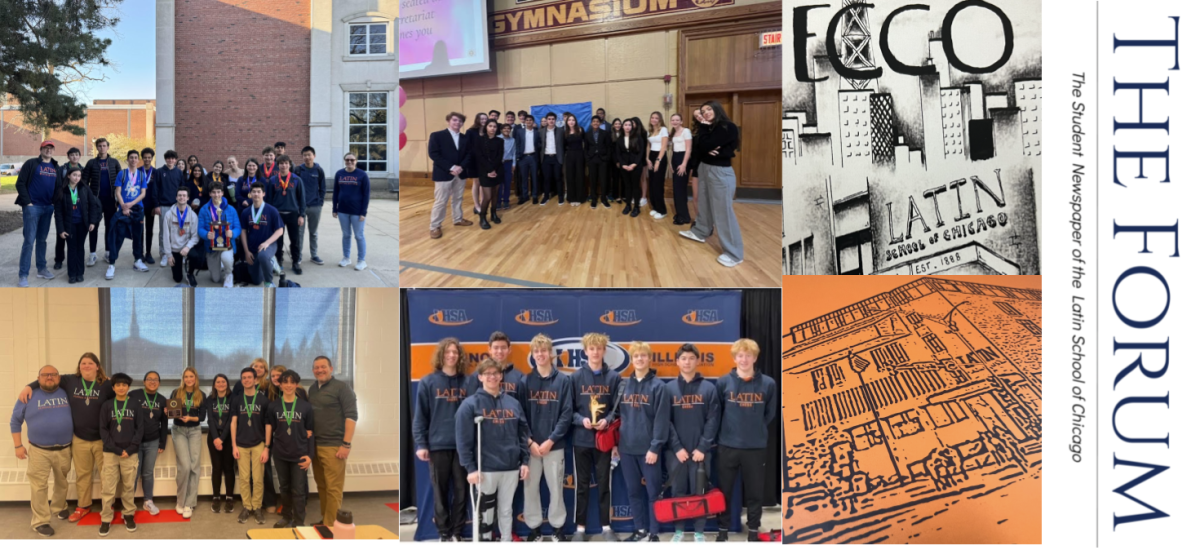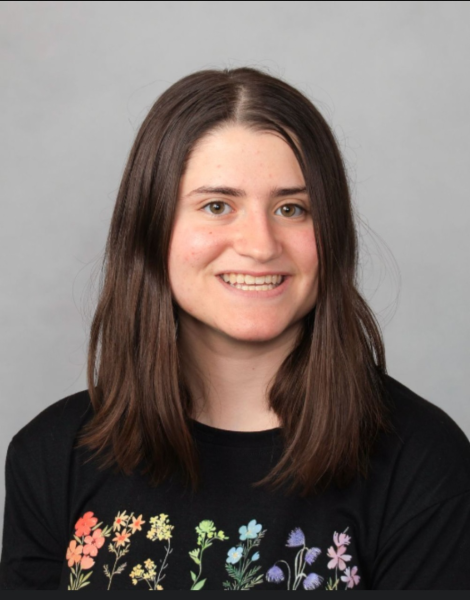The Upper School administration and Latin’s Business Office help support many student opportunities at Latin. During the Clubs Fair each fall, colorful posters boasting out-of-town tournaments, regional and statewide contests, and a slew of drives and service opportunities often conceal careful planning, dutiful construction, and—sometimes most vitally—proper funding.
Every year, the Upper School sets aside funds for all clubs to draw from. “There is a set overall clubs budget, just like there’s a set student government budget,” Upper School Director Nick Baer said. This year, according to the Business Office, Upper School co-curriculars have been allocated around 132,000 dollars.
These funds are managed by the Upper School’s senior administrative leadership team, student government advisors, and Director of Student Life Tim Cronister. “In the Upper School, Mr. Baer has some money that he uses—either the discretionary funds and/or certain ones that are given to clubs and can be used by clubs,” Mr. Cronister said.
Chief Financial Officer Michael Szczepanek said, “The Upper School club budgets are supported out of the pool of resources allocated to the Upper School. These resources are intended to cover the many academic, co-curricular, and community costs that help make Latin such an incredible place.”
In addition to general co-curricular funds, some clubs have expenses beyond the ordinary or need consistent, considerable funds from year to year. Mr. Baer said, “Every other club fits in the larger club budget, and there are those handful of clubs that, because of the nature of what they have to do to be a club, have an outstanding budget.”
Larger club funds are generally allocated gradually, starting with a small investment and then mounting as the club grows.
From year to year, these clubs present outlines of their expected expenses to the Upper School team. “What would normally happen is the faculty sponsor and/or the student leaders would say, ‘Here’s how much we think we need,’” Mr. Baer said.
From there, the Upper School team works with Mr. Szczepanek and his colleagues to allocate funds. Mr. Szczepanek said, “During the fall and winter months, the Business Office works closely with Mr. Baer and his team to understand the growing and changing needs and strategies of the various departments, clubs, and initiatives within the US umbrella.”
These conversations also happen directly between the Business Office and individual clubs. Latin’s Scholastic Bowl team, for example, has had a budget for around 25 years and works to communicate the funds that they need on a year-to-year basis. Upper School chemistry teacher and Scholastic Bowl coach Jonathan Legendre said, “Every year I am contacted by the Business Office and asked what I anticipate my needs are.”
Latin’s administration works to make these conversations as accommodating as possible. In particular, Mr. Legendre said, “The Business Office has been aware of inflation and aware of the increase to transportation costs, particularly following lockdown.”
Teacher stipends are a common expense for clubs with budgets. Mr. Legendre said, “The main expense is compensating the coaches for our time, and that amount historically has been similar to an athletic coaching, and it’s been codified by the Stipend Committee.”
Through the Stipend Committee’s work, teacher stipends have been addressed by the Latin School Union and administration. The Collective Bargaining Agreement, ratified in June 2023, addresses stipends alongside issues like work hours, class load, and course sizes for teachers. “All the stipends are separate, and they’re all now part of the Collective Bargaining Agreement,” Mr. Cronister said.
Beyond faculty compensation, funds needed by clubs are often more individualized. Model United Nations and Model Congress, for example, have costs associated with the specific competitions they attend. “Each time we sign up for a conference, we have to pay for each delegate,” junior, Model UN, and Model Congress head Graham Snyder said. “That’s mainly for in-town conferences, but out-of-town conferences we also have to pay for housing—so hotel rooms—and food.”
Similarly, for Scholastic Bowl, Mr. Legendre described some of the costs of maintaining their team. “Buses, tournament fees, practice questions, team shirts—we really try to make it so that people who participate in Scholastic Bowl don’t have to pay for anything,” he said.
Indeed, making co-curriculars—even those with high financial commitment—affordable to students at Latin from a variety of socioeconomic backgrounds is an aim embedded even beyond the process of funding clubs. “If parents are asked to pay and if they’re on financial aid, that gets worked out with the Financial Aid Department in Enrollment Management,” Mr. Cronister said.
More broadly, these efforts—both those aimed at supporting individual students and funding larger organizations—are part of Latin’s mission to provide enriching extracurricular opportunities to all of its students. Mr. Baer said, “We want to support co-curriculars, especially the ones that kids are committed to.”

















































